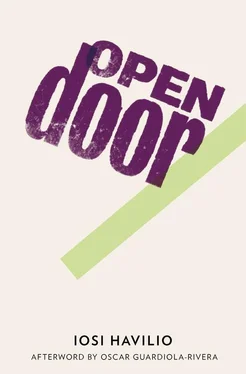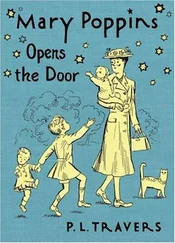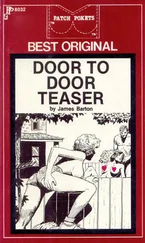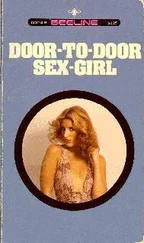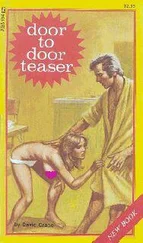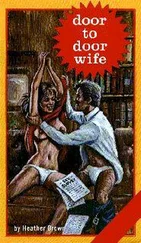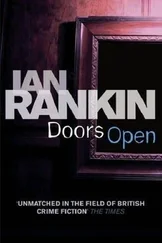Iosi Havilio - Open Door
Здесь есть возможность читать онлайн «Iosi Havilio - Open Door» весь текст электронной книги совершенно бесплатно (целиком полную версию без сокращений). В некоторых случаях можно слушать аудио, скачать через торрент в формате fb2 и присутствует краткое содержание. Год выпуска: 2013, Издательство: And Other Stories, Жанр: Современная проза, на английском языке. Описание произведения, (предисловие) а так же отзывы посетителей доступны на портале библиотеки ЛибКат.
- Название:Open Door
- Автор:
- Издательство:And Other Stories
- Жанр:
- Год:2013
- ISBN:нет данных
- Рейтинг книги:4 / 5. Голосов: 1
-
Избранное:Добавить в избранное
- Отзывы:
-
Ваша оценка:
- 80
- 1
- 2
- 3
- 4
- 5
Open Door: краткое содержание, описание и аннотация
Предлагаем к чтению аннотацию, описание, краткое содержание или предисловие (зависит от того, что написал сам автор книги «Open Door»). Если вы не нашли необходимую информацию о книге — напишите в комментариях, мы постараемся отыскать её.
Iosi Havilio
Open Door
Open Door — читать онлайн бесплатно полную книгу (весь текст) целиком
Ниже представлен текст книги, разбитый по страницам. Система сохранения места последней прочитанной страницы, позволяет с удобством читать онлайн бесплатно книгу «Open Door», без необходимости каждый раз заново искать на чём Вы остановились. Поставьте закладку, и сможете в любой момент перейти на страницу, на которой закончили чтение.
Интервал:
Закладка:
Jaime didn’t react immediately. He spent the rest of the afternoon and a good part of the night playing cards with Boca. They emptied a whole bottle of gin between them. I came and went, from the bedroom to the kitchen, I slept a bit and played a few hands when one or other of them went to the bathroom or needed a rest. A couple of times, Jaime left the house to go and see his horse. The first time he went alone, the second, Boca and I accompanied him. We dragged the animal outside, pulling him by a rope tied to his back legs. We took him as far as the mill. Jaime didn’t seem to have taken it in, he was talking about buying a new scythe and about a loony who hid amongst the bushes at the plant nursery and made Jaime almost crap himself with fear when he appeared. Boca listened to him, drunker than ever. I watched them in silence, thinking that there’s no such thing as miracles.
At one point, Jaime mentioned something about the stable, he said it was going to be left empty now, but he didn’t make any direct reference to the animal. And that was the other Jaime’s wake: in the open air and with lots of alcohol.
My eyes open in the middle of the night and, with less of a shock than the first few times, I find the bronze crucifix suspended in the air. A dusty, yellowish light forms its outline. It no longer seems as sordid to me, nor as suffocating as it used to. Now that I know it, it’s inoffensive, necessary, in keeping with this rickety iron bedstead that squeaks when I try to make myself comfortable, and with all the rest, the vast doors, the cold floors, the marbled kitchen table, the broken bathroom tiles, every corner of the house frozen in time, the splintered shelves in the wardrobe, the earthenware pots, the bordered tablecloths, all the old stuff, Jaime, snoring at my side, and the mosquito nets. All of which brings me a new and unfamiliar peace.
The following morning, Boca and Jaime are talking in the kitchen. It doesn’t look like they’ve been to bed at all. Boca says that the best thing would be to burn him, then bury the ashes somewhere. Cremate him, corrects Jaime. It sounds logical; a normal burial would be a colossal effort. Jaime doesn’t seem convinced but he eventually accepts the solution and they decide to organise the bonfire for that same night. For the ceremony, Jaime invites his brother Héctor, who lives in Luján.
I spend the whole afternoon in bed, facing the ceiling. On the wardrobe, under some thick, moth-eaten blankets, there are two identical boxes, flat and round. I climb onto a chair to find out what’s in them. The first one is empty, or practically empty. When I lift it up, a couple of mothballs rattle about inside. In the other, there are two books, a bundle of handwritten sheets of paper, a couple of faded photos and some loose locks of dark brown hair.
Later that day, I ask Jaime about the boxes.
‘They’ve always been there,’ he says and I can see that he’s never had any reason to move them.
As the afternoon light was dying, Héctor arrived in his old pick-up, with his wife Marta and their twin sons. Nobody really asked what I was doing there, I was just another one of the family. Boca dug a groove around the horse to contain the fire. The boys accompanied me to the woods to collect dry logs and branches. Marta stayed in the house preparing the meal. Jaime and Héctor took charge of arranging the wood, creating a kind of primitive shack that caged the animal. At around ten we reconvened to start the bonfire. Jaime seemed to prepare himself to say a few words but he swallowed them and, without preamble, lit the fire at its four cardinal points, starting at the south and finishing in the west. At first, the fire didn’t take properly, so Boca tried to revive it by dousing the wood with spurts of kerosene.
When we had eaten, the flames were still very high and the other Jaime was invisible. The twins played with the embers using lit branches as sparklers. Afterwards, they fell asleep, shoulder-to-shoulder. Boca drank all the wine again. Héctor told Jaime all about his projects, country stuff. I bored myself talking to Marta until she got bored of me.
There was much more left of the horse than we expected. Instead of ashes we found a heavy jumble of long bones, not entirely bare, which filled a pit the size of a small child behind the stable.
FOURTEEN
Skirting the fence, I spend the afternoon kicking pine cones. Behind the row of poplars, so that Jaime can’t see me. I told him I was going shopping in Luján.
‘And what do you need to get?’ he asked.
‘Women’s stuff,’ I answered in jest, but he didn’t laugh. He was wondering what kind of stuff that might be.
The sky splits into almost perfectly equal bands, over where the sun is going to disappear. A whole spectrum of pastel colours. I’m beginning to lose count of all the afternoons I’ve already spent here.
I’m walking with my head down, in search of new pine cones to kick, so I jump when I hear a timid hello close by. It’s Eloísa, the girl from the shop. Hi, I say and her eyes dart all over the place. Under her arm, she’s carrying a rolled-up burlap bag. She’s wearing a buttoned blouse patterned with tiny bunches of flowers, yellow, red and white, rococo style, and a black bra, which is very see-through, making her diminutive tits more pronounced.
‘I’m going mulberry picking. Want to come?’ she says. ‘They’re the last of the season, after these there won’t be any more until October.’
We walk next to each other, my legs shrouded in denim, hers covered to the knee by a kilt, school uniform, I assume.
‘Once, when I was little, I ate so many that I had a fever for at least a week,’ says Eloísa and laughs, deliberately dragging her trainers. A cloud of dust follows us.
At the end of the road, Eloísa ducks and slips through a tiny gap between the strands of barbed wire that separate Jaime’s land from the polo field. I catch a glimpse of her knickers. I squeeze through, with a bit of a struggle. Eloísa laughs again.
On the left, between two trees interlacing at their crowns, a narrow path begins, plunging to a practically dry stream. Momentum sends us flying down. It’s outright forest. Eloísa runs in front of me, raising the burlap bag above her head as if it were a mini parachute.
‘We need to go higher, the branches down here have already been picked, they’re the easiest to reach. Are you game?’
We climbed the tree, and it felt a bit as though we’d always been doing this. We ate red mulberries, those that were left, which weren’t many.
‘Do you have a boyfriend?’
‘Something like that.’
‘And where does he live?’
‘There,’ I say, pointing at the farm. Eloísa laughs at Jaime and at me. She imagines us together.
‘But he’s an old man,’ she says and I don’t know how to respond. I cough. Eloísa doesn’t insist but she asks me lots of other questions, whatever comes into her head. I answer some, others, most of them, she answers herself.
Where are you from? Do you like it here? Aren’t you bored? What about your friends? Do you smoke? How long are you going to stay? You’re joking about the old man, aren’t you? Have you ever eaten white mulberries? What about medlars? Would you like to try them?
She speaks rapidly, all at once, while she destroys a rotten mulberry between her finger tips. Her nails are bitten, painted a long time ago with a child’s varnish. Now she falls silent and without meaning to, in trying to reach some difficult mulberries, she shows me her knickers again. I can’t help it, I want to touch her.
We said goodbye a few steps from the gate, with the night on top of us. First, we tried to cross the stream to pick some little wild tomatoes that were visible from the other side. But Eloísa slipped and fell in the water. She was drenched.
Читать дальшеИнтервал:
Закладка:
Похожие книги на «Open Door»
Представляем Вашему вниманию похожие книги на «Open Door» списком для выбора. Мы отобрали схожую по названию и смыслу литературу в надежде предоставить читателям больше вариантов отыскать новые, интересные, ещё непрочитанные произведения.
Обсуждение, отзывы о книге «Open Door» и просто собственные мнения читателей. Оставьте ваши комментарии, напишите, что Вы думаете о произведении, его смысле или главных героях. Укажите что конкретно понравилось, а что нет, и почему Вы так считаете.
